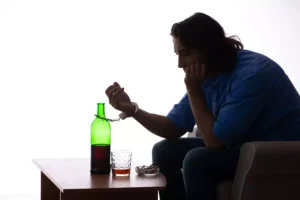
Most people getting treatment for substance use disorder benefit from using both group and substance abuse group activities individual therapy. There are a multitude of activities that can occur during group therapy for substance use disorder, and many are evidence-based and deemed highly effective. It’s important for inpatient and outpatient rehab facilities to incorporate beneficial substance abuse group activities. Group therapy is a helpful and effective method of treatment if you conduct it properly. You want to encourage as much participation as possible and there are a few different ways you can do that. If you or a loved one is looking for substance abuse treatment, you can find it today.
Group therapy remains a central component of substance use disorder treatment, offering a collaborative and supportive environment crucial for recovery. Group therapy is a therapeutic approach where one or more therapists work with a group of individuals to facilitate healing and shared experiences. The purpose of these sessions is to connect individuals, share experiences, and develop essential skills. The support and mutual understanding found in group psychotherapy can significantly improve mental health, fostering personal growth and resilience. Structured activities within these groups are highly effective in promoting personal growth, enhancing self-awareness, and building strong community bonds that can bolster resilience.
Discuss how treatments for physical illnesses – like broken bones or infections – are similar to treatments for psychological illnesses like addiction. Brainstorm ideas for the ideal hospital or retreat to provide you with mental and emotional healing. Being a part of a group can help establish a source of accountability for group members.
These activities promote a supportive environment where participants can thrive and grow. Mandala coloring is a calming activity where participants engage in coloring intricate designs, helping them express feelings non-verbally. This activity aids in stress relief by providing a creative outlet and distracting participants from everyday worries. Recognizing personal strengths can facilitate greater self-awareness and empower individuals to leverage their unique capabilities in various situations.
These affirmation collages can act as a source of hope and strength for group members in recovery. Therapists who run these groups are very resourceful and in order to keep the process relatively fresh introduce different activities and topics continually. It is important to understand that group therapy can only be delivered by a licensed, trained, professional therapist.
Therapists can then help members understand the relationship alcoholism symptoms between situations and emotions and how clients can better cope with those emotions in the future. You can also encourage clients to replace addiction with healthy hobbies and transformative activities to uplift the recovery experience. Some people find it hard to say no to substance use in social gatherings or parties. Through this activity, you can encourage your participants to say no to drug use clearly. Those whose keys fit into the lock can sit together and discuss their challenges and offer insights into the recovery journey.


For example, you might decide that you will exercise instead of sitting on the sofa while watching television. After playing with them, transition into a discussion about the fallibility of our senses and point of view. Talk about how differently people perceive things based on who they are and the situation at hand. Also, please leave a comment below if you have other ideas, or would like to add to the discussion. This activity helps members explore qualities, interests, and values that define them beyond addiction, encouraging them to embrace a new, healthy identity. This activity encourages members to celebrate even minor milestones, helping them recognize progress and reinforcing a sense of accomplishment.
Facilitators should also be aware of their own https://ecosoberhouse.com/ biases and triggers to manage group dynamics effectively. This could include severed relationships, health issues, or financial issues. Ask participants to share a high and low from their week to build trust without oversharing. A guided meditation session at the start of a substance abuse group activity session can create a calming atmosphere for participants.

And for the theatrically inclined, drama therapy provides a stage for practicing coping skills. Role-playing scenarios allow individuals to rehearse responses to triggering situations in a supportive environment. It’s like a dress rehearsal for real-life challenges – minus the actual stress. Kayla is a Mental Health Counselor who earned her degree from Niagara University in Lewiston, New York. She has provided psychotherapy in a residential treatment program and an outpatient addiction treatment facility in New York as well as an inpatient addiction rehab in Ontario, Canada. She has experience working with individuals living with a variety of mental health concerns including depression, anxiety, bipolar disorder, borderline personality disorder, and trauma.